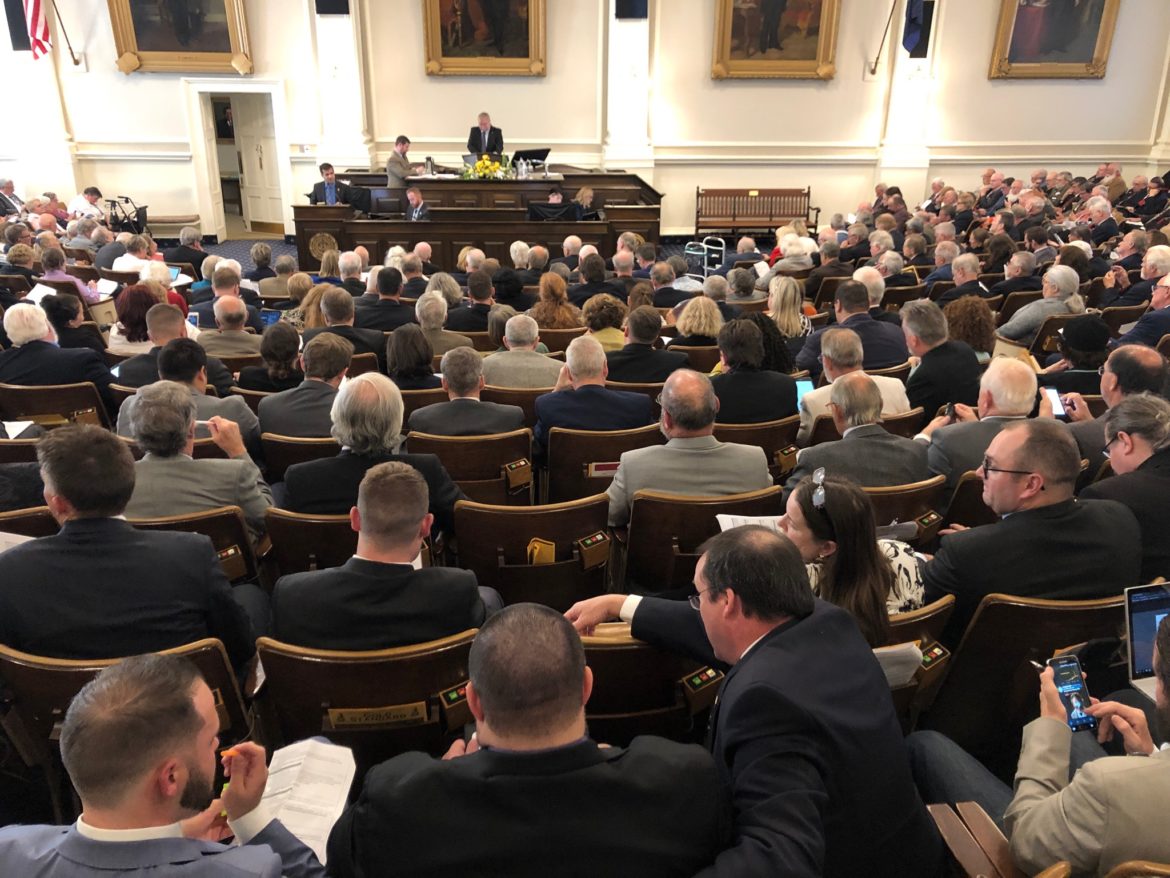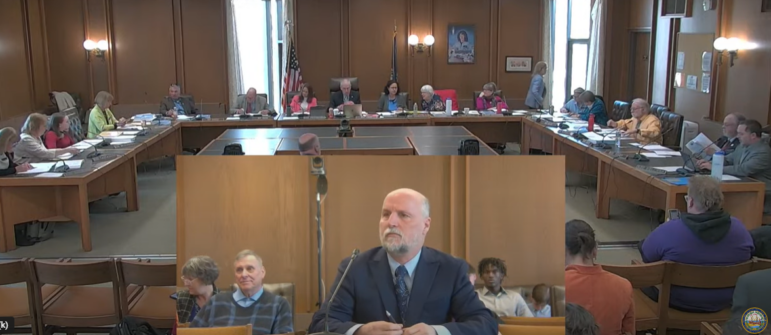By GARRY RAYNO, InDepthNH.org
CONCORD — Disabled Democrats who sued seeking remote access to House sessions, seek an expedited ruling from the First Circuit Court of Appeals in a motion filed Monday.
The plaintiffs, six Democratic House members with health concerns and the state Democratic Party, seek a ruling upholding the court’s decision and to remand the case back to the U.S. District Court, grant remote access for the at-risk Democrats while the lower court determines if they are covered under the American with Disabilities Act, and grant any other relief necessary.
The dozen or so lawmakers who risk death if they contract COVID-19, face returning to 400-seat Representatives Hall for a session March 10, and the motion states that is a grave danger to the representatives with no masking requirement and no ability to socially distance. And most Republicans refuse to wear masks and many are opposed to COVID-19 vaccinations, the plaintiffs claim.
“Each member .. .has to be within 6 feet of 19 to 26 other members and within 3 feet of 8-13 others. The sessions generally last for entire days,” wrote lead attorney Paul Twomey in the motion.
Representatives have not sat shoulder to shoulder in the historic room for two years and House Democratic Leader, Rep. Renny Cushing, D-Hampton, said last week it was a short-sighted decision that puts members at risk.
“Packing people into Representatives Hall like sardines with no mask or vaccination requirement or other prevention strategies is a disaster in the making,” Cushing said.
The at-risk Democrats, including Cushing, sued House Speaker Sherman Packard in federal court about a year ago under the Americans with Disabilities Act seeking remote access to House sessions, saying without that access it was in fact a functional ouster of the lawmakers that expands the Republican’s slim majority.
The case was argued in the U.S. District Court where U.S. District Court Chief Judge Landya B. McCafferty sided with the Speaker, who claimed legislative immunity.
The Democrats appealed and The First Circuit overturned that decision in April 2021 and sent the case back to the district court to determine if the disabled Democrats actually met the definition under the law.
Packard sought a rehearing, which the appeals court granted and was held last year, but a decision has not been released.
All the hearings and decisions to this point were done on an expedited basis, the motion claims.
“Since this matter was argued before the Court on September 10, 2021, the Defendant has taken actions that have markedly reduced and/or eliminated the limited ability of the Plaintiff-Appellants to safely fulfill the constitutional obligations of their offices and resulted in the disenfranchisement of themselves and their constituents,” Twomey writes.
Since that time, the conditions of four of the plaintiffs has changed making the need for a decision more critical, he said, noting one had an organ transplant and is in immunosuppressant chemical therapy, another diagnosed with 4th stage cancer and on chemo treatments, another contracted COVID-19, and another is in hospice care.
While the House has met offsite in larger facilities to allow for social distancing and for masked and unmasked sections, some members who followed Centers for Disease Control guidelines and stayed away, could have made a difference in some significant decisions, the motion claims.
“The House has had numerous votes in recent sessions decided by very small margins,” Twomey writes. “Three votes initially resulted in ties that were then broken by the vote of the Speaker.”
The tied vote involved House redistricting, an attempted repeal of a 24-week abortion ban and mandatory ultrasound for any abortion, and allowing workers at medical facilities to be exempt from COVID-19 vaccination mandates, according to the motion.
“These votes were of enormous consequence to the people of New Hampshire,” Twomey writes. “Other matters decided by single digits include votes on congressional redistricting, cannabis legalization, educational funding, and retirement system funding.”
The upcoming sessions will likewise address many issues of momentous import for Plaintiffs, their constituents, and all the citizens of New Hampshire, he notes.
“The people of the state have the right to have these decisions made with the participation of all duly elected Representatives,” the motion states.
The Speaker objects to the motion seeking the expedited ruling.
Packard has maintained he has legislative immunity and cannot be sued over the routine operations of the House.
He also maintains a change in House rules is necessary to allow for remote access for members to attend sessions, but proposed changes to the rule by Democrats have been voted down at least four times by Republicans.
The Biden administration filed in support of the Democrats on appeal.
Attorney Katherine Lamm, representing the United States, said at the second court of appeals hearing: “The question in this appeal is simple. Whether plaintiffs may sue the state of New Hampshire for reasonable accommodation under Title 2 of the ADA and 504 of the Rehabilitation Act.”
“The answer is simple as well, yes they can,” Lamm told the court.
She said the two sections obligate public entities that receive federal funding to provide reasonable accommodations to qualified individuals with disabilities.
The remainder of the House sessions for this year are expected to be in Representatives Hall. The members of the Senate have been meeting in Representatives Hall to allow for social distancing, but will be returning to Senate Chambers in March as well.
Garry Rayno may be reached at garry.rayno@yahoo.com.





